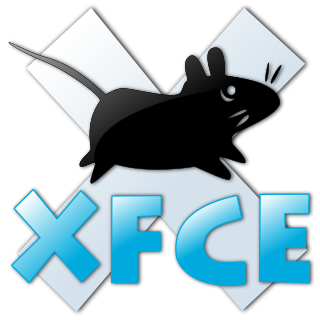
Xfce or XFCE is a free and open-source desktop environment for Linux and Unix-like operating systems.

GNOME Evolution is the official personal information manager for GNOME. It has been an official part of GNOME since Evolution 2.0 was included with the GNOME 2.8 release in September 2004. It combines e-mail, address book, calendar, task list and note-taking features. Its user interface and functionality is similar to Microsoft Outlook. Evolution is free software licensed under the terms of the GNU Lesser General Public License (LGPL).

gedit is the default text editor of the GNOME desktop environment and part of the GNOME Core Applications. Designed as a general-purpose text editor, gedit emphasizes simplicity and ease of use, with a clean and simple GUI, according to the philosophy of the GNOME project. It includes tools for editing source code and structured text such as markup languages.
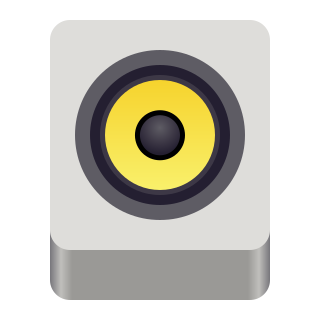
Rhythmbox is a free and open-source audio player software, tag editor and music organizer for digital audio files on Linux and Unix-like systems.

Tomboy is a free and open-source desktop notetaking app written for Windows, macOS, Linux, and BSD operating systems. Tomboy is part of the GNOME desktop environment. As Ubuntu changed over time and its cloud synchronization software Ubuntu One came and went, Tomboy inspired various forks and clones. Its interface is a word processor with a wiki-like linking system to connect notes together. Words in the note body that match existing note titles become hyperlinks automatically, making it simple to construct a personal wiki. For example, repeated references to favorite artists would be automatically highlighted in notes containing their names. As of version 1.6 (2010), it supports text entries and hyperlinks to the World Wide Web, but not graphic image linking or embedding.

Kontact is a personal information manager and groupware software suite developed by KDE. It supports calendars, contacts, notes, to-do lists, news, and email. It offers a number of inter-changeable graphical UIs all built on top of a common core.
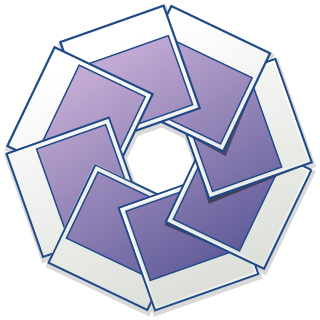
F-Spot is a slowly maintained image organizer, designed to provide personal photo management for the GNOME desktop environment. The name is a play on the word F-Stop.
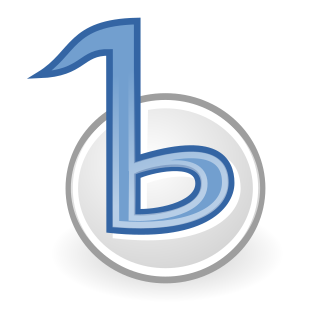
Banshee is a cross-platform open-source media player, called Sonance until 2005. Built upon Mono and Gtk#, it used the GStreamer multimedia platform for encoding, and decoding various media formats, including Ogg Vorbis, MP3 and FLAC. Banshee can play and import audio CDs and supports many portable media players, including Apple's iPod, Android devices and Creative's ZEN players. Other features include Last.fm integration, album artwork fetching, smart playlists and podcast support. Banshee is released under the terms of the MIT License. Stable versions are available for many Linux distributions, as well as a beta preview for OS X and an alpha preview for Windows.

Compiz is a compositing window manager for the X Window System, using 3D graphics hardware to create fast compositing desktop effects for window management. Effects, such as a minimization animation or a cube workspace, are implemented as loadable plugins. Because it conforms to the ICCCM conventions, Compiz can be used as a substitute for the default Mutter or Metacity, when using GNOME Panel, or KWin in KDE Plasma Workspaces. Internally Compiz uses the OpenGL library as the interface to the graphics hardware.
A personal wiki is wiki software that allows individual users to organize information on their desktop or mobile computing devices in a manner similar to community wikis, but without collaborative software or multiple users.
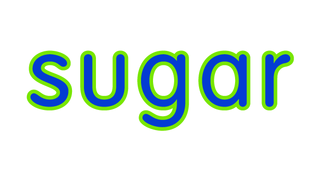
Sugar is a free and open-source desktop environment designed for interactive learning by children. Copyright by SugarLabs. Developed as part of the One Laptop per Child (OLPC) project, Sugar was the default interface on OLPC XO-1 laptop computers. The OLPC XO-1.5 and later provided the option of either the Gnome or Sugar interfaces.
A desktop environment is a collection of software designed to give functionality and a certain look and feel to an operating system.

Buzztrax is a free software project to create a clone of the Buzz music composer. The driving motivation is to preserve the playability of the compositions made with Buzz. Songs are made by adding virtual sound generators and effects, connecting them, recording short musical phrases and arranging them in the sequencer. For distribution, songs can be exported to common audio formats such as OGG, MP3, WAV and many others.
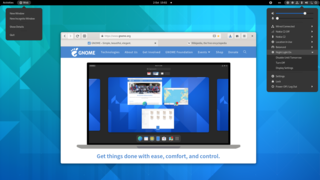
GNOME, originally an acronym for GNU Network Object Model Environment, is a free and open-source desktop environment for Linux operating systems.

GNOME Shell is the graphical shell of the GNOME desktop environment starting with version 3, which was released on April 6, 2011. It provides basic functions like launching applications, switching between windows and is also a widget engine. GNOME Shell replaced GNOME Panel and some ancillary components of GNOME 2.

Russian Fedora Remix was a remix of the Fedora Linux Linux distribution adapted for Russia that was active in 2008–2019. It was neither a copy of the original Fedora nor a new Linux distribution. The project aimed to ensure that Fedora fully satisfied the needs of Russian users with many additional features provided out of the box. In autumn 2019 the project was phased out because its leaders announced that it "had fulfilled its purpose by 100%" and all of the Russian-centric improvements were officially included in Fedora repositories, and Russian Fedora software maintainers became regular Fedora maintainers.
Fedora Linux is a Linux distribution that is a fork of Red Hat Linux developed by the Fedora Project. Fedora attempts to maintain a six-month release schedule, offering new versions in May and November.

Zim is a graphical text editor designed to maintain a collection of locally stored wiki-pages, a personal wiki. Each wiki-page can contain things like text with simple formatting, links to other pages, attachments, and images. Additional plugins, such as an equation editor and spell-checker, are also available. The wiki-pages are stored in a folder structure in plain text files with wiki formatting. Zim can be used with the Getting Things Done method.

paldo is a computer operating system built on top of the Linux kernel and using the GNU utilities. It was originally developed by Jürg Billeter and Raffaele Sandrini and released in 2004, mainly under the GNU GPL.
















